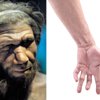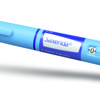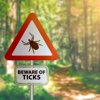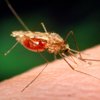Fritextsökning
Artiklar per år
Innehållstyper
-

A billion-dollar acquisition makes Novo Nordisk even bigger in obesity
Danish pharmaceutical giant Novo Nordisk acquires Montreal-based Inversago Pharma, which develops treatments for obesity and diabetes.
-

Why the world renown researcher Marc Tessier-Lavigne resigns as Stanford´s president
In mid-summer, neuroscientist Marc Tessier-Lavigne announced his resignation as President of Stanford following allegations of manipulated study data. According to the reporter Theo Baker, who first reported the story, Tessier-Lavigne “rewarded the winners and punished the losers”. Here is the background of the story which has shaken the American scientific community over the summer.
-

Larm: Varningsnätverk för globala sjukdomsutbrott kan kollapsa
Varningssystemet för sjukdomsutbrott, Pro Med, som bland annat var en av de första att varna världen om covid-19 tycks vara nära kollaps.
-

Uppsala-based company wins important patent dispute – but the decision is subject to appeal
A US district court has ruled in favour of Orexo in a dispute over the patent protecting the Swedish company’s drug Zubsolv, developed for treating patients with opioid addiction. However, the opposing party, the Indian company Sun, is not giving up
-

Han är Sahlgrenska universitetssjukhusets nya sjukhusdirektör
Nu står det klart att det är Boubou Hallberg som tar sig an uppdraget som ny sjukhusdirektör för Sahlgrenska universitetssjukhuset.
-

Uppsalabolag fick rätt i viktig patenttvist – men beslutet överklagas
En amerikansk distriktsdomstol har beslutat till Orexos fördel i en tvist om patentet som skyddar det svenska bolagets behandling Zubsolv för patienter med opioidberoende. Men motparten, indiska Sun, ger sig inte utan har lämnat in ett överklagande.
-

Förlikning i babypuderskandal stoppas av domstol
Det amerikanska läkemedelsbolaget Johnson & Johnson har för en andra gång fått avslag av en domare om en konkursansökan för dotterbolaget LTL Management, mest känt som enheten bakom det omtalade babypudret som misstänkts ha orsakat cancer i en rad fall.
-

The Swedish Life Science Office: “We lost in both coordination and manpower”
Since the turn of the year, the Swedish government’s life science office has operated at a lower capacity. Life Science Sweden has spoken to Pontus Holm, Departmental Secretary at the office, about the ongoing work.
-

Neanderthal gene variants may cause Viking disease
A new study suggests that the so-called Viking disease, which affects the hand function in many older people, may be linked to gene variants inherited from Neanderthals.
-

Lucy Robertshaw: Artificial intelligence – is this really going to transform a patient’s life?
In a column Lucy Robertshaw reflects on how AI and new regulations will affect healthcare, innovation and the lives of future patients.
-

Anna Törner: The minute between life and death
“I have never told anyone about this day that happened more than 20 years ago. But I sometimes reflect on what happened, on what might have happened. When I try to understand why I haven’t told anyone, I find the answer: a feeling of shame
-

AstraZeneca moves to brewery quarters in central Copenhagen
AstraZeneca in Denmark is moving its business into central Copenhagen and the old brewery quarters in Carlsberg Byen.
-

Nanexa develops depot formulation of the diabetes and obesity drug Saxenda
Uppsala-based company Nanexa has signed an agreement with a German contract research company to start a clinical study with a monthly depot of liraglutide. The drug is currently approved for the treatment of diabetes and obesity.
-

Nanoparticles to help detect pulmonary disease
Nanoparticles behave in a certain way in the air. Using this knowledge, researchers at Lund University have developed a new measurement method for lung examinations based on the phenomenon.
-

Ny vd på Aegirbio
Diagnostikbolaget Aegirbio har rekryterat en ny vd – Marco Witteveen.
-

Studie: Blodprov för att mäta hjärnpåverkan efter neurokirurgi
I framtiden tror forskare vid Göteborgs universitet att ett blodprov skulle kunna vara ett komplement till magnetkamera för att undersöka skador i samband med kirurgi av hjärntumörer.
-

Rapid developments in AI – “All stakeholders are struggling to understand it”
Artificial intelligence is being discussed more and more, and developments in the field are moving rapidly. As the Swedish Medical Products Agency testifies, keeping up with developments is not easy.
-

Study: Semaglutide tablet produces weight loss
The pharmaceutical semaglutide is effective for weight loss even when given in tablet form, according to a phase 3 study.
-

Egetis lägger ned buddiskussionerna
Svenska läkemedelsutvecklaren Egetis Therapeutics har gått ut med att diskussionerna om ett potentiellt förvärv av företaget nu har lagts ner.
-

Norwegian company wins bidding battle for Sensidose
The lengthy battle to acquire medical device company Sensidose is apparently over. Generic medicines company EQL Pharma is pulling out, selling its shares and leaving the way open for Norwegian company Navamedic.
-

Samuel Lagercrantz: The government’s performance in healthcare and life sciences so far
Since the change of government in Sweden, developments in the healthcare sector have shown promising signs, but the outlook in life sciences is less promising, writes Samuel Lagercrantz in an editorial.
-

Valneva-vd kliver in i styrelsen för Alzheimerbolag
Valnevas Sverigechef Janet Hoogstraate har valts in i styrelsen för Alzecure, ett bolag som utvecklar läkemedel inom Alzheimers och smärta.
-

The first Lyme disease vaccine faces a delay
Pfizer and Valneva’s Lyme disease vaccine, which could be the first of its kind, is facing delays of about a year. The reason is problems at trial sites in the United States, which have forced the companies to drop half of the participants in an ongoing Phase III study.
-

A new malaria vaccine offers hope but much more research is still needed
There has long been no vaccine against malaria, but there have been breakthroughs in recent years. However, it is still unclear how we become immune to the malaria parasite, and this is a vital piece of the puzzle for creating effective vaccines, says malaria researcher Kristina Persson.